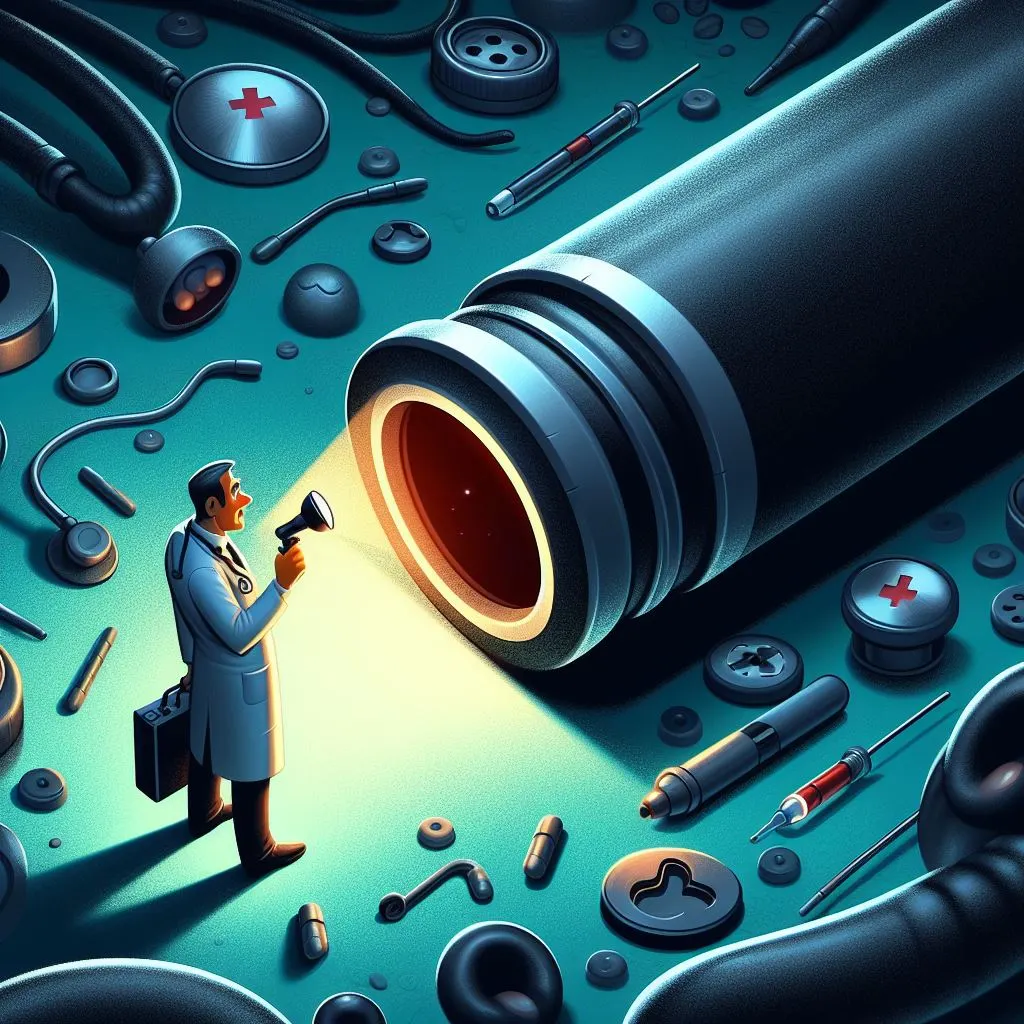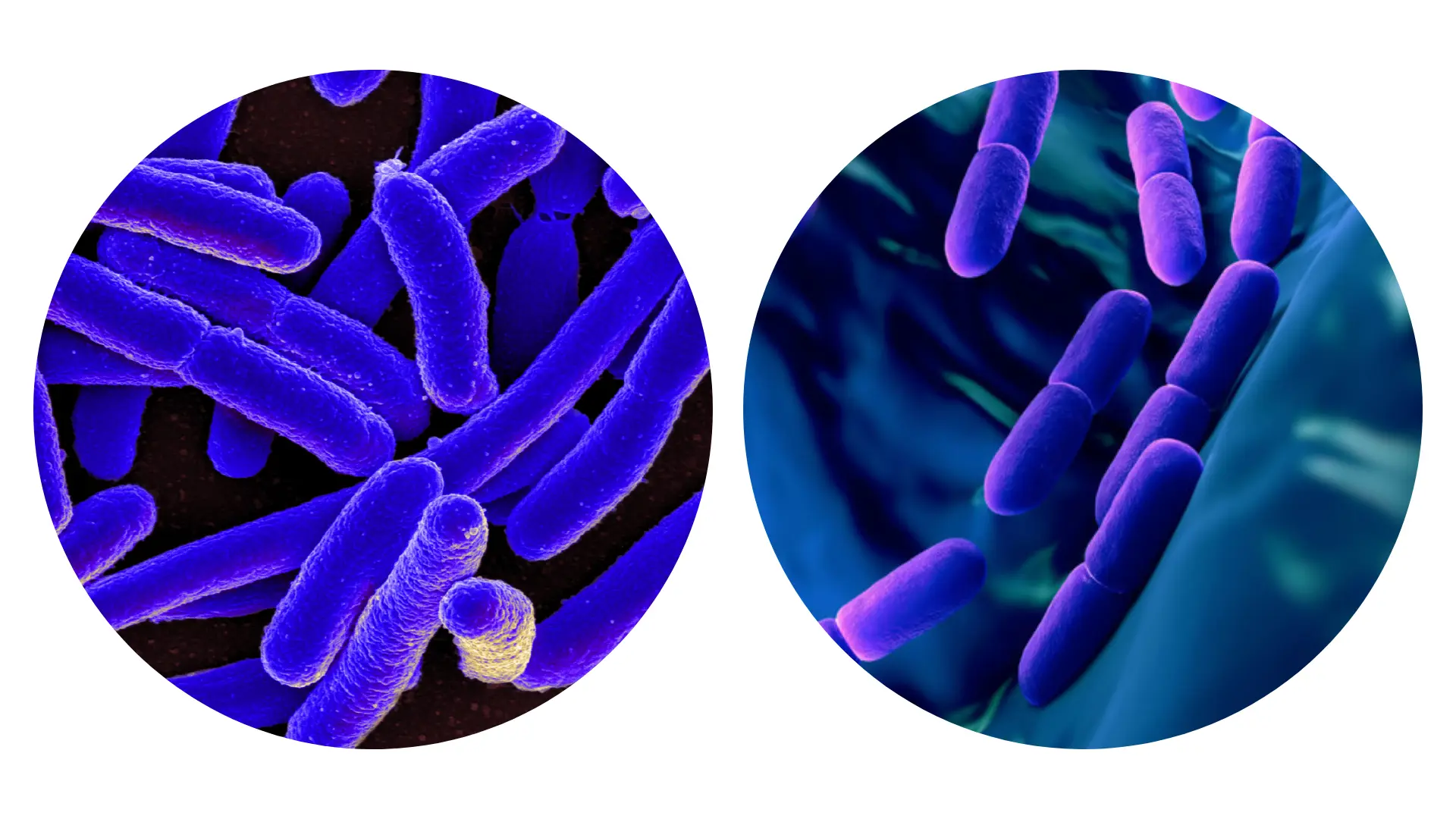
Colorectal cancer is becoming a Gen Z problem
How each successive generation became increasingly susceptible to one of the “deadliest” cancers
Image: Generated with Bing AI
Even half a century after the National Cancer Act — the opening salvo of Richard Nixon’s “War on Cancer” — came into effect, cancer continues to be the second leading cause of death in the United States. We might be approaching a “silver oncologic tsunami,” experts predict: Cancer cases worldwide are expected to surge 77 percent by 2050, according to a recent World Health Organization report.
Cancer is traditionally regarded as a disease of old age, since nearly 70 percent of cancer cases and 87 percent of all cancer deaths occur in people older than 50 years.
Biologists view cancer as a genetic program gone wrong, where mutations or epigenetic changes cause errors in cellular replication. Cells are tightly regulated in number, but there comes a time when things don’t behave the way they used to. Genes associated with cell division and growth may show increased activity, while those responsible for cellular death may be turned down.
The risk of such cancer-promoting errors increases with age, as normal cells may acquire certain mutations that lead to their transformation into malignant cells that form tumors and spread to foreign locations in the body.
An ongoing increase in global life expectancy and a growing proportion of over-50s may explain why cancer cases are expected to rise. But it fails to explain why an increasing number of young adults are growing susceptible to cancer.
For most of our evolutionary history, most humans did not live long enough for cancer to become a worry. But extrinsic hazards like predation, pathogens, and starvation have since lost much of their claim on human life.
Our body’s tumor suppression abilities earlier in life could be attributed to natural selection: Nature invested in the maintenance of our bodies to maximize reproductive success, but gave up once a future generation was established or reproductive fitness declined.
This may explain why just one in ten new cancer cases each year occur in people under 45. However, it does not account for the consistently rising rates of early-onset cancer since the 1950s.
One study estimates that early-onset cancers — described as cancer occurring in adults aged under 49 — increased by nearly 80 percent worldwide between 1990 and 2019, with a 28 percent increase in cancer deaths. The fastest growing of these were cancers of the gastrointestinal kind, including colorectal cancer.
Researchers expect this to continue increasing with successive generations due to a phenomenon they call the “birth cohort effect,” where each successive generation has a greater risk of developing cancer later in life.
Colorectal cancer incidence rates increased in 27 of 51 countries worldwide between 1983 and 2002, a rise primarily seen in economically transitioning countries. In Japan, for example, rates rose by 92 percent in men and 47 percent in women — possibly relating to the time of Westernization.
Colorectal cancer, also known as bowel cancer, is the second-most lethal cancer worldwide after lung cancer, killing close to a million people every year.
Although new colorectal cancer diagnoses have been declining among older adults since the 1950s, it has become one of the fastest-growing types of early-onset cancer — now the leading cause of cancer-related death for men under 50.
An analysis from the Financial Times found that cases of colorectal cancer among young adults increased 70 percent in the G20 nations between 1990 and 2019, compared to a 24 percent increase in all cancers.
Due to a lack of screening among under-50s, the actual number could be much higher. Cases in younger populations are easily missed since the symptoms often overlap with common health issues — like being dismissed as hemorrhoids or irritable bowel syndrome.
Experts suggest several possible reasons behind this trend, including rising obesity rates, poor lifestyle, increased exposure to pollutants and carcinogenic chemicals, and a mysterious link to the gut microbiome.
One understanding is that something not-yet-identified is affecting individuals starting early in life, that may cause cancer at an earlier age. Since tumors take years to grow, it could even be something that begins in utero.
Footprints of the Western diet on a map of colorectal cancer diagnoses
Microbiomes are unique and dynamic, like fingerprints, so that no two people can have identical ones. Scientists are growing increasingly appreciative of these up to 100 trillion microbial cells that collectively form the human microbiome — including their role in diseases of the gastrointestinal kind and beyond.
One understanding is that certain strains of gut bacteria can release toxins that damage DNA, and the damage may turn cancerous at some point.
People with certain colorectal cancers tend to have a worse prognosis and worse outcomes with treatment if their microbiome contains more of a Fusobacterium species. A Flavonifractor species is one of the key bacterium associated with colorectal cancer in Indian races.
One study connects increased microbial diversity and the presence of specific bacterial species to young-onset colorectal cancer. And these changes may not begin during adolescence or adulthood, but as early as in the womb.
When humans first acquire the microbes that shape their immunity and nutrient processing is a hot debate, but growing evidence shows development of the gut microbiota begins before birth. But the scientific consensus has now shifted toward a mother’s role in shaping the microbial arm of the baby’s immune system.

The gut microbiome is home to diverse organisms belonging to hundreds of species, including bacteria like Escherichia coli (left) and Lactobacillus bulgaricus (right). Photo: NIH and Polaristest via Flickr
Doctors were told how fetuses were born sterile, with the womb environment — the amniotic sac and the fluid surrounding the baby — a unique environment devoid of any microbial agents in order to protect the growing baby. But several now believe that the mother seeds the baby with these microbes at birth and in the months of intimate contact that follows, establishing the “microbiome” that alters through life and is tied to the immune system itself.
Some researchers connect growing antibiotic use and the subsequent gut dysbiosis to increased instances of early-onset colon cancer, since both global antibiotic consumption and cases of early-onset colon cancer cases have increased significantly since the 1980s.
While the immediate link is still unclear, researchers believe that any permanent irregularities in the gut microbiome can impede normal immune-surveillance, increasing the risk of tumor formation and cancer. Other studies have shown how obesity and diet can cause gut dysbiosis, exploring an indirect link to gastrointestinal cancers.
Beyond the gut: The challenges of diagnosis and the aftermath
The five-year survival rate of major early-onset cancers ranges from 17 to 94 percent, but the trauma experienced early in life exposes children and young adults to an increased lifetime risk of depression, anxiety, and psychotic disorders.
Young adult patients with cancer experience additional psychological burdens, exposed to unique stressors like body image, intimacy, and autonomy. Having cancer as a young person can be alienating, as a story from the Cut highlights. “My relationships have also changed; being sick shifts everything,” said breast cancer survivor Robin Browne.
Diagnosed at the earliest stage, at least 9 in 10 people survive bowel cancer for five years or more. But diagnoses in young adults remain elusive — screening recommendations for colorectal cancer were recently lowered from 50 to 45, but the U.S. Preventive Services Task Force is unlikely to go any lower.
Colonoscopies have been the first-line method when it comes to screening colorectal cancer in America, supposed to have lowered the risk of new cases by 70 percent. It involves inserting a camera up the rectum to search for pre-cancerous polyps, with anything suspicious removed before it buds into cancer.
Yet the procedure can be invasive, painful, and even inaccessible at times, and according to a high-profile trial, clinicians hugely overestimate its effectiveness.
The Nordic-European Initiative on Colorectal Cancer (NordICC) is a randomized trial that recruited more than 80,000 people aged 55 to 64 in Poland, Norway, and Sweden to test how effective colonoscopies are at reducing cancer and death.
The researchers then followed the participants for a decade and checked who had been diagnosed with colorectal cancer, died to colorectal cancer, or died from other causes. They found that the participants who were invited for a colonoscopy saw a 18 percent reduction in colorectal cancer risk, but were no less likely to die from bowel cancer compared to those who were never invited for a colonoscopy.
The study has its limitations, but it gives evidence of how colonoscopies might not be as effective a screening tool as we hoped. It equally emphasizes that screening makes a significant difference, since most colorectal cancer cancer cases are highly curable when detected early.
When tumor cells strike out on their own and metastasize to new sites in the body, therapies and drugs rarely achieve more than prolonging a patient’s life by a few years.